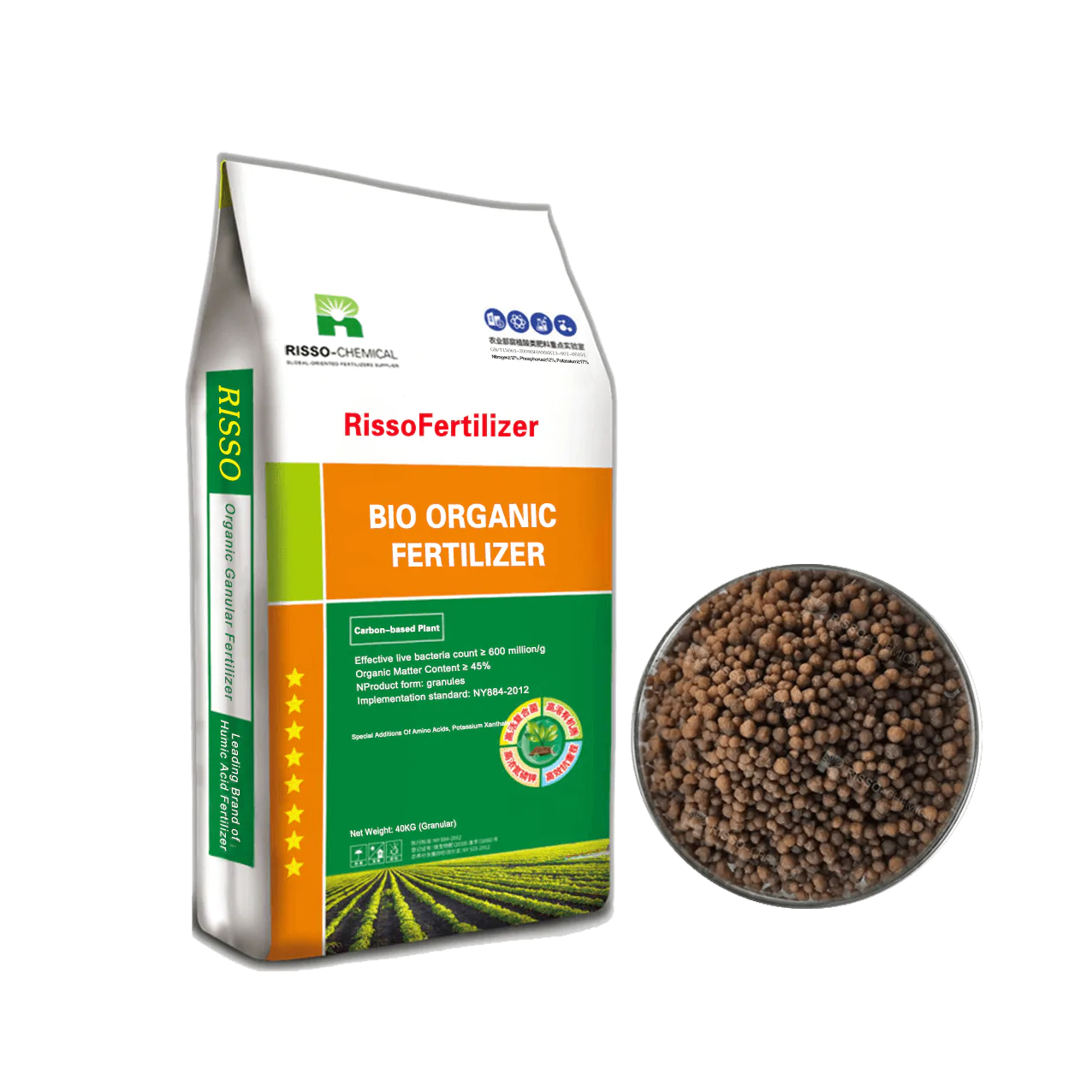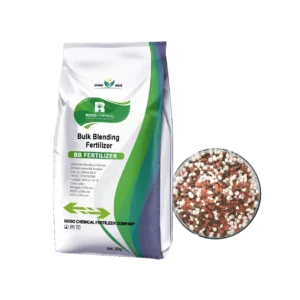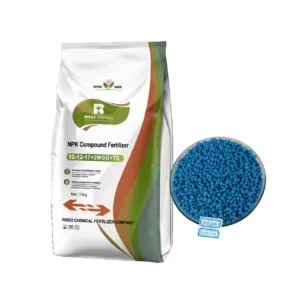Risso’s Bio Organic Fertilizer is derived from plant-based raw materials and undergoes a 100-day, three-stage fermentation process to ensure complete maturation. Utilizing target microorganisms, it is industrially cultured and processed into a high-performance active microbial formulation. This fertilizer enhances soil quality, maintains the microbial balance in the rhizosphere, promotes robust plant growth, improves agricultural product quality, and contributes to a healthier agricultural ecosystem.
Product Features
Root Growth and Seedling Strengthening
This product is rich in bio-stimulants derived from microbial metabolism, which act on the meristematic tissues of plants. It promotes root tip cell division, accelerates the growth of fine roots, enhances root system development, and ensures robust plant growth.
Root Nourishment and Protection
Containing abundant microorganisms, organic matter, and humic substances, this product repairs damaged crop roots, rapidly replenishes root nutrients, and promotes mycorrhizal growth. Through the synergistic effects of microbial communities, it protects crop roots and enhances stress resistance.
Microbial Supplementation and Cultivation
After application to the soil, the microorganisms in this bio fertilizer multiply rapidly, forming dominant microbial communities around crop roots. They facilitate the decomposition and transformation of organic matter, support the symbiotic relationship of mycorrhizae, suppress harmful pathogens, and effectively reduce soil-borne diseases.
Soil Activation and Quality Improvement
This bio fertilizer significantly increases soil organic matter content, improves soil physical and chemical properties, and fosters the formation of soil aggregates. It loosens and activates the soil, enhances soil fertility and vitality, promotes robust crop growth, improves agricultural product quality, and boosts farming profitability.
Applicable Crops
This bio fertilizer is suitable for a wide range of crops, including fruit trees, vegetables, melons, root and tuber crops, greenhouse economic crops, as well as field crops such as wheat, corn, cotton, and peanuts.






